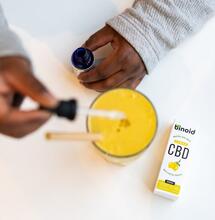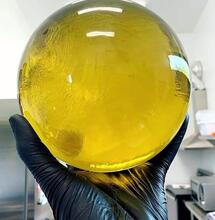Alzheimer’s Can Pass Between Humans in Rare Cases

A new study documents cases where U.K. patients who received human growth hormone from deceased donors in a medical procedure banned for decades, went on to develop symptoms of Alzheimer’s disease. The researchers in the study clarify that people cannot get Alzheimer’s through everyday activities. Cannabis is one of the drugs that’s currently being investigated for Alzheimer’s treatment.
Humans can contract Alzheimer’s through rare medical accidents, a new study suggests. However, scientists stress that there is no evidence whatsoever that a person can catch the deteriorating brain condition during everyday situations or when taking care of patients.
The research findings suggest that around eight patients developed an early onset of Alzheimer’s after receiving human growth hormone extracted from the pituitary glands of deceased donors, reports The Guardian.
The patients likely contracted the disease because the hormones used in the now outlawed treatment carried proteins that seeded the disease in their brain.
“We’re not suggesting for a moment you can catch Alzheimer’s disease. This is not transmissible in the sense of a viral or bacterial infection” said in a statement Prof John Collinge from the University of London.
“It’s only when people have been accidentally inoculated, essentially, with human tissue or extracts of human tissue containing these seeds, which is thankfully a very rare and unusual circumstance,” said Collinge.
An Unordinary Discovery About Alzheimer’s
The study, which was published in the journal Natural Medicine, documents that between 1959 and 1985, almost 2,000 patients in the U.K. received the human growth hormone treatment with extractions made from the pituitary glands of cadavers.
The practice was banned in 1985 after it came to surface that some patients died of Creutzfeldt-Jakob disease (CJD) as a consequence of the treatment. CJD is a rare brain condition that affects muscle coordination, thinking and memory, and the onset is rapid. It’s one of several Prion diseases, caused by infectious, misfolding proteins that accumulate in the brain.
Reportedly, there were 80 such cases in the U.K., and some were also traced to have amyloid-beta proteins in the brain, an apparent signal of Alzheimer’s presence.
It remains unclear whether those patients would have ever developed Alzheimer’s. However, further research confirmed the presence of the protein in question in some of the used hormone batches, and that these triggered dementia-like symptoms when administered in rodents.
Between 2017 and 2022, researchers identified eight cases, registered with the National Prion Clinic, all of whom had received human growth hormone from deceased donors, but did not have CJD.
Five had dementia symptoms meeting clinical criteria for Alzheimer’s disease, and in one of the cases the onset was at the age of 38. The three other cases included a patient with mild cognitive impairment, one with self-reported cognitive difficulties, and one without symptoms.
The findings add to the theory that Alzheimer’s might have similarities with Prion diseases in the way proteins distribute around the brain.
Cannabis is One of the Drugs Investigated for Alzheimer’s
While one portion of the research around Alzheimer’s is focused on understanding more about the disease, another part is looking for drugs and treatments.
Currently there’s no cure for Alzheimer’s, but one of the drugs, known as Lecanemab, shows promise in slowing down the disease’s progress by removing the problematic protein that creates sediments around the brain.
On the other hand, cannabis is tested for behavioral symptoms associated with Alzheimer’s, including agitation and aggression. Clinical trials have demonstrated that cannabis can help in addressing these symptoms, however, it works only for some patients.
In North America, some of the research into cannabis for Alzheimer's is funded by the Canadian Alzheimer Society Research Program. In particular, it’s research about assessing how endocannabinoids affect mood and anxiety in dementia and how synthetic cannabis drugs such as Nabilone can treat agitation in Alzheimer’s patients.
Also read on Soft Secrets:
















